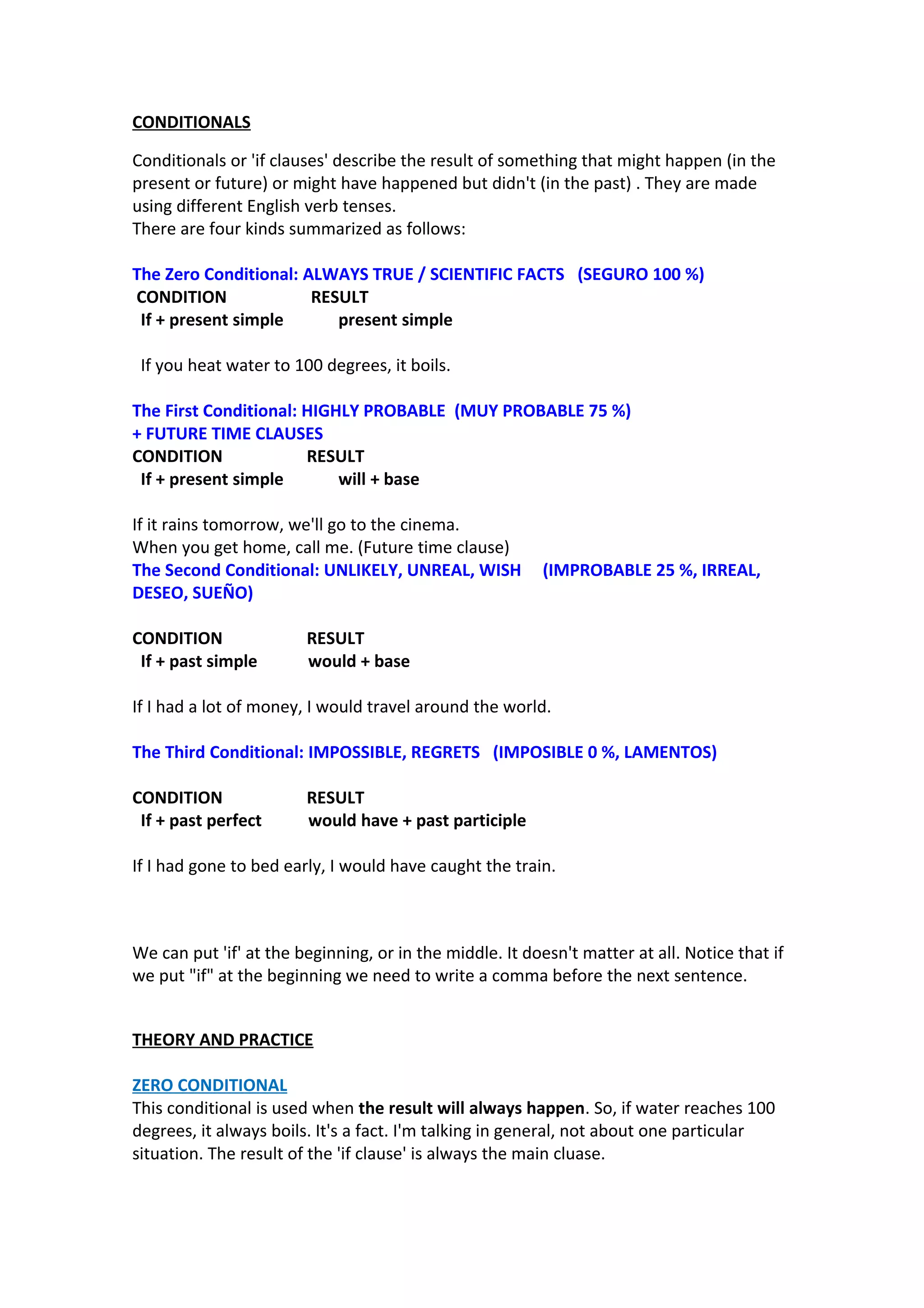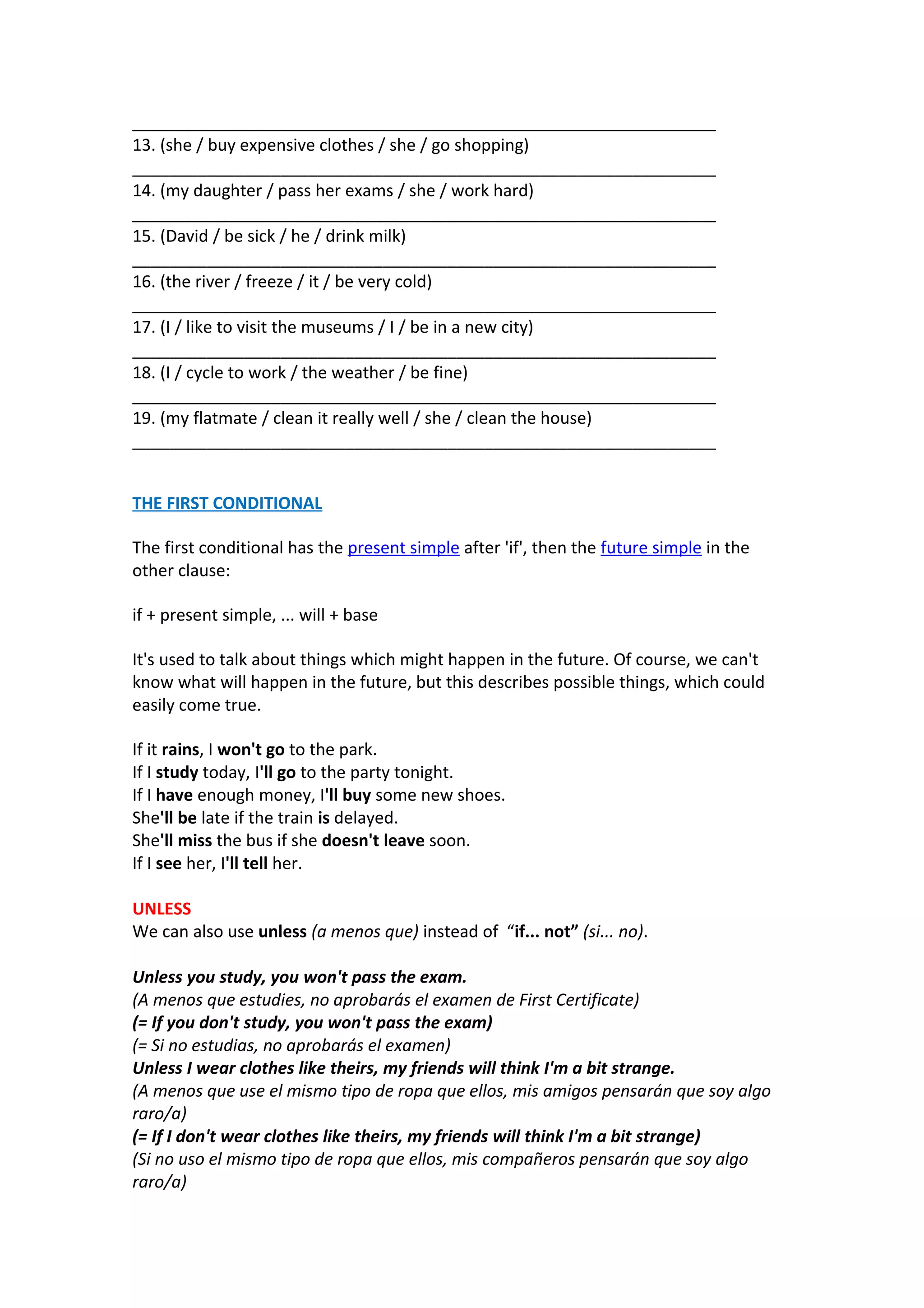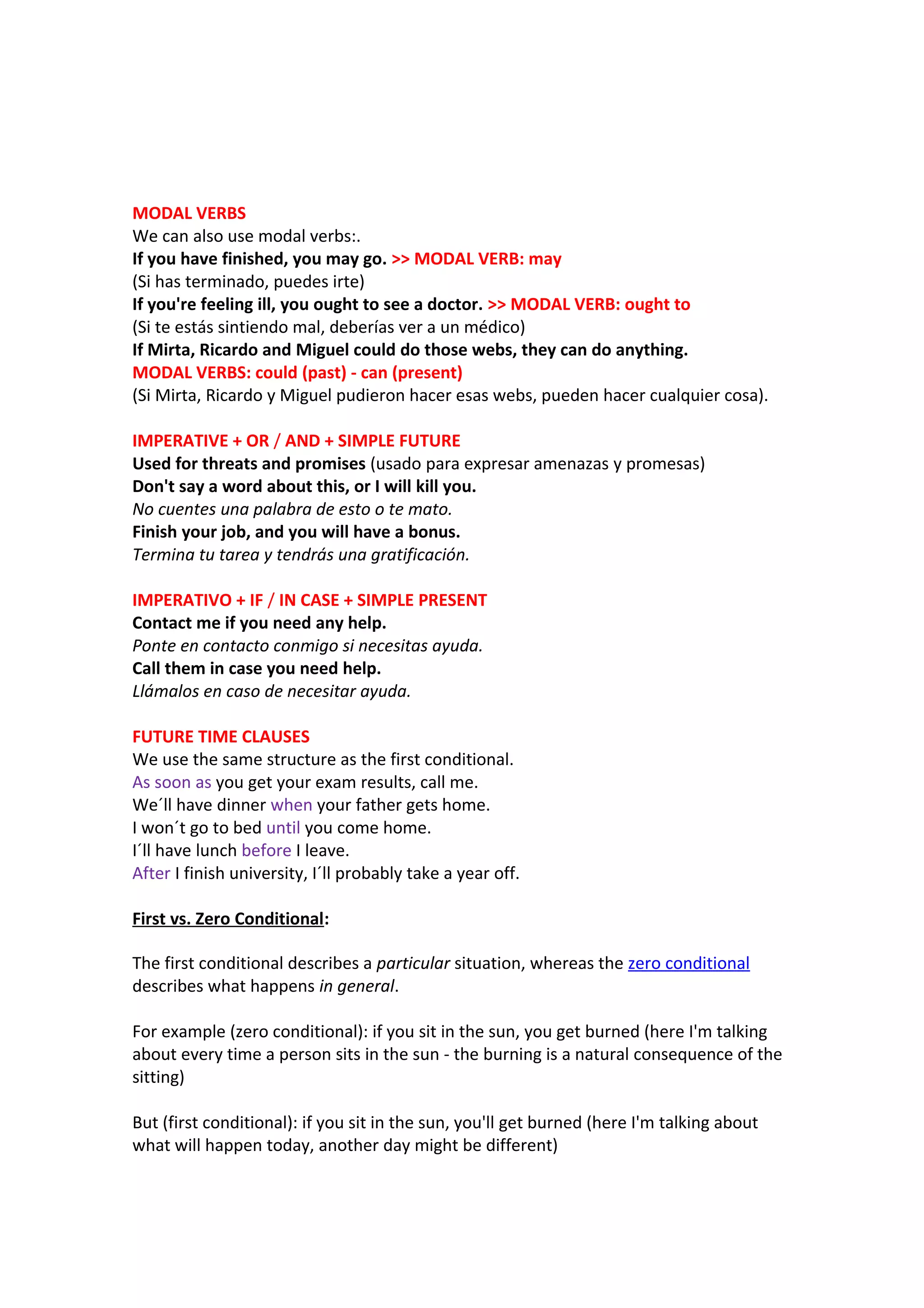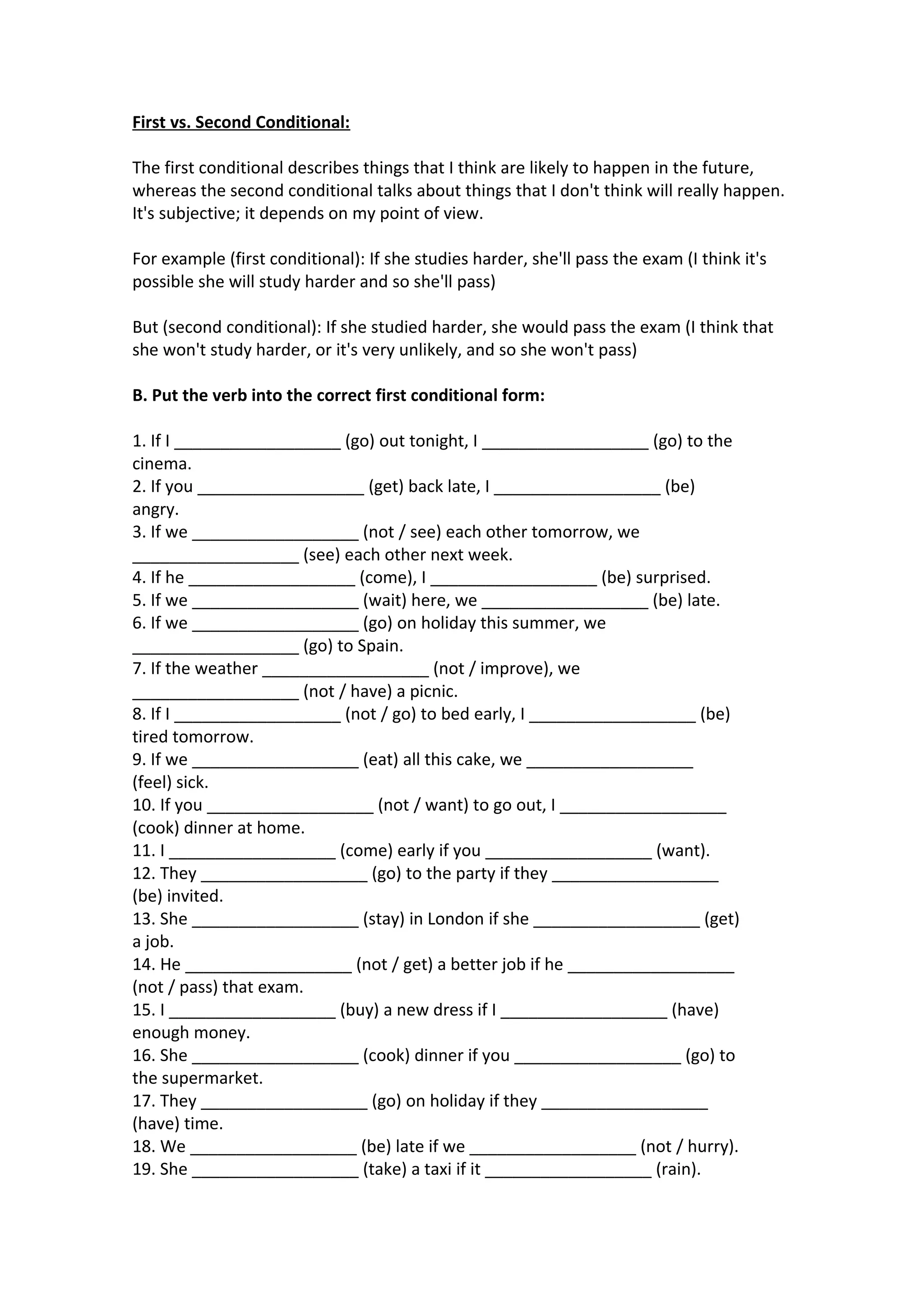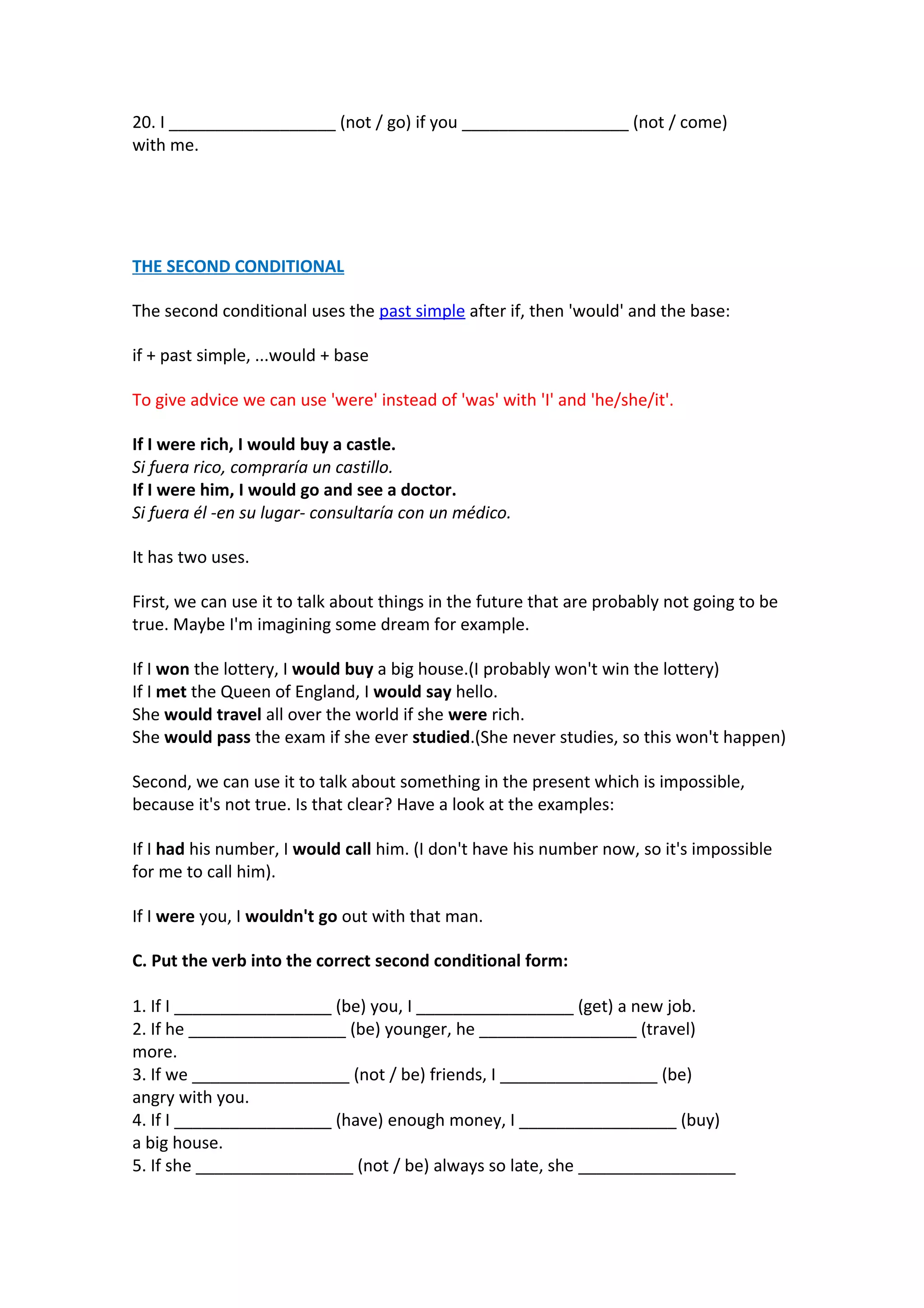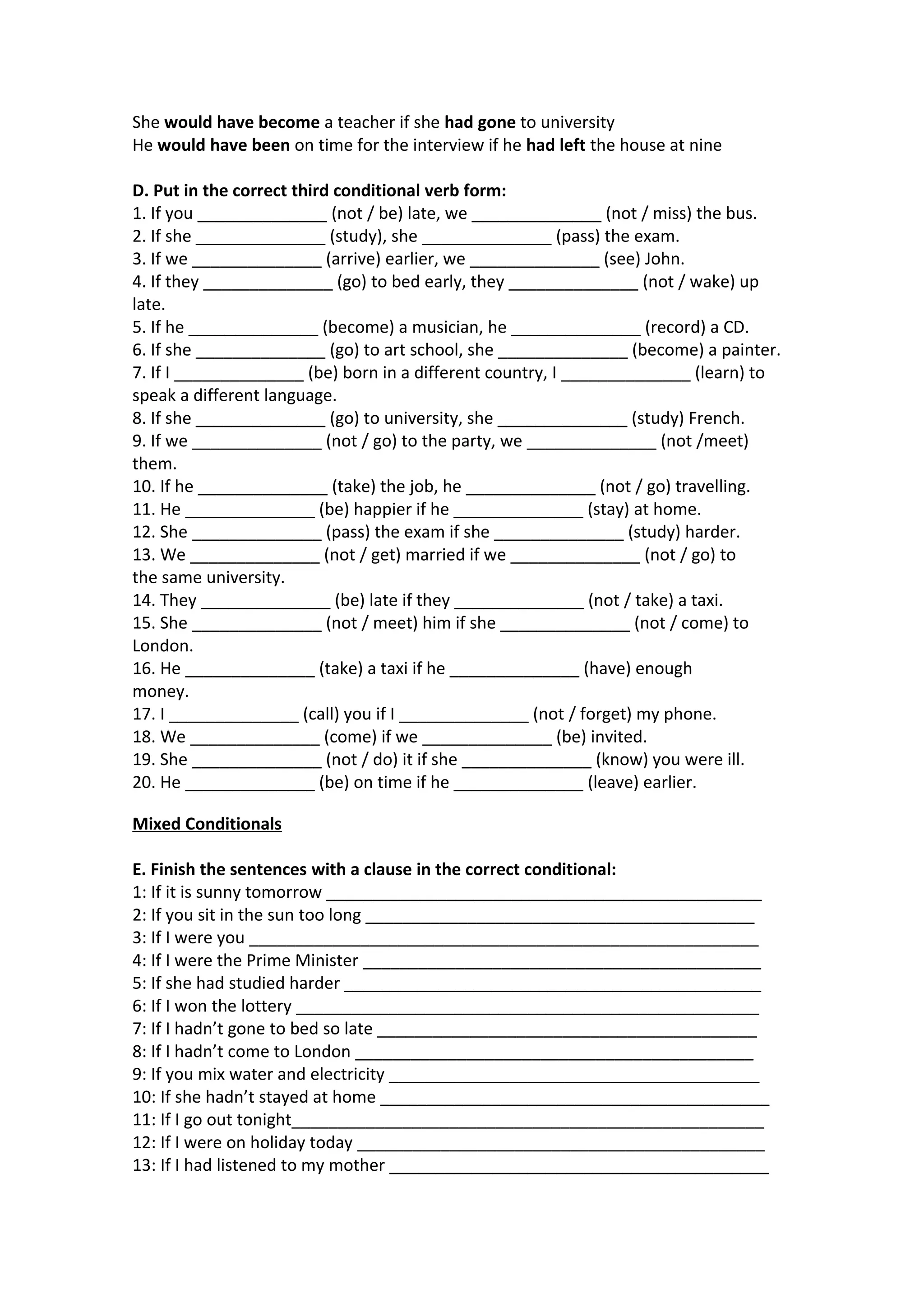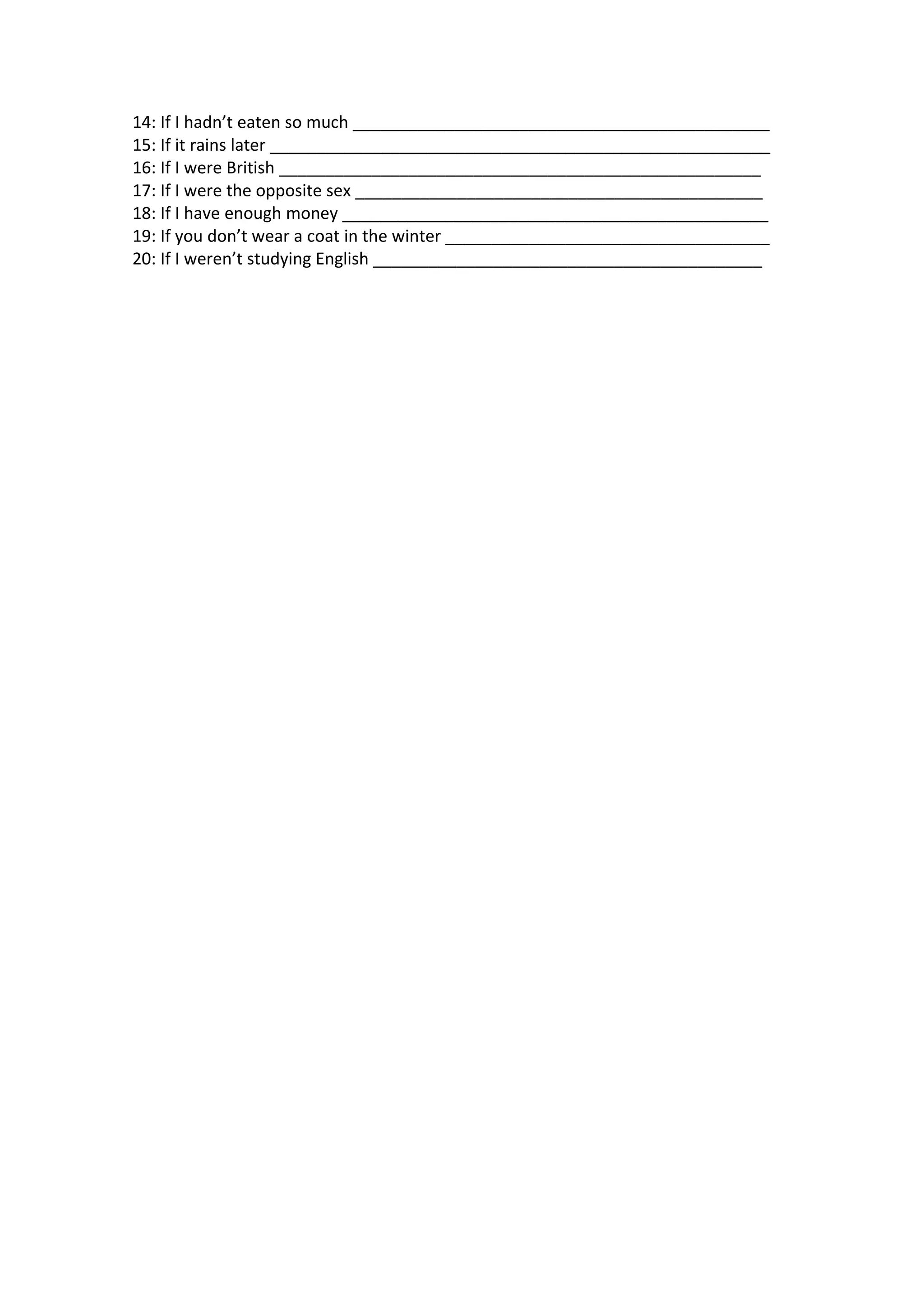The document discusses different types of conditionals in English:
- Zero conditional describes scientific facts using present simple verbs (e.g. if you heat water to 100 degrees, it boils)
- First conditional describes possible future events using present simple and will (e.g. if it rains tomorrow, we'll go to the cinema)
- Second conditional describes unlikely or hypothetical events using past simple and would (e.g. if I had a lot of money, I would travel)
- Third conditional describes regrets or impossible past events using past perfect and would have (e.g. if I had gone to bed early, I would have caught the train)
